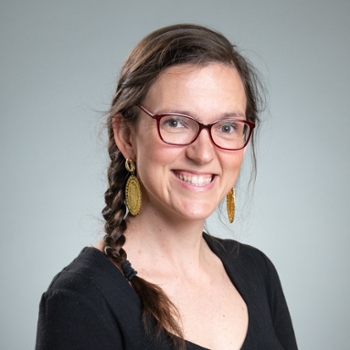SGS Celebrates Graduate Student Winners of Federal Tri-Council Awards - Julianne Gerbrandt
Author: Andrea
Posted on Apr 13, 2023
Category: Student Stories , Money Matters

Profile of: Julianne Gerbrandt
Award Received: Canada Graduate Scholarship – Doctoral (The Social Sciences and Humanities Research Council of Canada)
Awarded for the project: Investigating Systemic Barriers to Early-French Immersion Through School Mathematics
Faculty: Education
Project supervised by: Karla Culligan and David Wagner
The French immersion (FI) program in New Brunswick is controversial and unstable. The provincial government recently announced their intention to replace the current FI program with a universal “French for all” framework that aims to improve the communicative skills of all anglophone children in the province. Unlike the current program that immerses students in the target language for 90% of instructional time, this new framework is a 50-50 immersion model that would see students spending half the day learning in English and half the day learning in French. Though much remains uncertain with a framework that is still under development, the Minister of Education has suggested that mathematics would no longer be taught in French.
While this announcement superficially describes an educational change, it surfaced simmering tensions between the two dominant linguistic groups in the province, the majority anglophones and the minority francophones. Part of what draws my interest to this research area is its connection to greater societal tension between these linguistic groups and how their relationship impacts education in the province.
The shifting FI landscape has had both personal and professional ramifications, and my research questions are the result of this unpredictable terrain. It began with a simple observation. During my time in the elementary FI classroom, I noticed that students who experienced difficulties meeting mathematics benchmarks seemed to be at a greater risk of leaving the program. Whereas parents seemed to accept the possibility that students might not meet language benchmarks according to a linear timeline, they were less comfortable with their children missing targets in their learning of mathematics. I also noticed that the children most likely to struggle with learning mathematics were children who came from lower income households. On the surface, the proposed changes to immersion might appear to offer these students a better experience with learning mathematics. Test scores generally improve when the language of instruction matches a student’s dominant language. In order for this to be true, we need to accept the premise that the language of instruction is the source of the problem. More importantly, this raises questions about who gets to develop French language competence. My research explores the following questions:
- How does the proposed “French for all” program in NB reveal dominant attitudes about learning mathematics in NB?
- What are the characteristics of the FI mathematics field?
- How does embodied cultural capital manifest in perceptions of mathematical competence in the FI mathematics classroom context?
My perspective of the FI program in NB is informed by Bourdieu and Passeron’s work examining the reproductive function of education in society. I will be using Bourdieu’s ‘thinking tools,’ namely his concepts of habitus, field, and cultural capital to describe, analyze, and question the experience of learning mathematics within an elementary FI context. Bourdieu’s concepts will help me to reveal the underlying structures that shape students’ experiences, surfacing the systemic challenges that disproportionately exclude some students from learning French as a second language.
